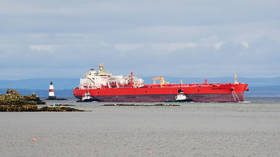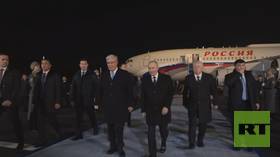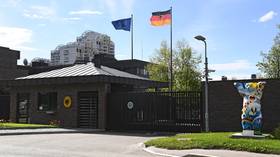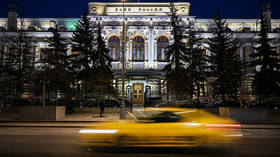UK expands Russia sanctions
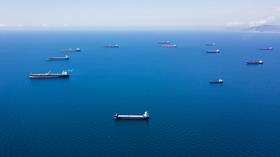
The UK has announced a new package of sanctions on Russian crude oil shipments intended to substantially reduce Moscow’s energy revenues.
According to a statement published by the UK government on Monday, some 30 oil tankers from what it described as ‘Russia’s shadow fleet’ have been sanctioned. A shadow fleet refers to ships or vessels that use concealing tactics to smuggle sanctioned goods.
Half of the targeted ships transported more than $4.3 billion worth of oil and related products like gasoline in the last year alone, the UK claims.
This brings the total number of oil tankers sanctioned by the UK to 73, the government said, noting that this is more than any other nation and demonstrates the UK’s “leadership on tackling the shadow fleet.”
Most of the oil carriers targeted by the new sanctions are Russia-flagged vessels, according to the published list. It also includes ships sailing under the Panama flag, and tankers registered in Gabon. The list also included two insurance companies.
Western governments have hit Russia with a barrage of sanctions over the Ukraine conflict. Among other measures, they have introduced a price cap, along with an embargo on Russian seaborne oil in an attempt to hurt the country’s economy, while at the same time keeping Russian crude flowing to global markets so as not to trigger price hikes.
The measures were imposed in December 2022, and were followed in February 2023 by similar restrictions on exports of Russian petroleum products. They ban Western companies from providing insurance and other services for shipments of Russian crude, unless the cargo is purchased at or below $60 per barrel, a level below the current market price.
In response, Moscow banned Russian enterprises from complying with the cap and rerouted most of its energy exports to Asia, particularly India and China.
Western officials have repeatedly acknowledged that Moscow has been successfully sidestepping the cap, as “almost none” of the crude shipments have been sold at or below the price limit, dealing a blow to Western efforts to curtail Russia’s energy revenues.
At the G7 foreign ministers’ meeting in Italy this week, UK Foreign Secretary David Lammy is expected to push other countries to maintain pressure on Russia, the press release indicated. He will also seek to step up military and financial support for Ukraine, it said.
According to a recent report by the independent economic think tank Institute for Energy and Finance Foundation (FIEF), Russia’s energy revenues may reach record levels this year, buoyed by high export oil prices. Income from oil exports surged by 63% between January and July this year compared to the same period in 2023, totaling 6.4 trillion rubles ($62 billion), the paper said.
